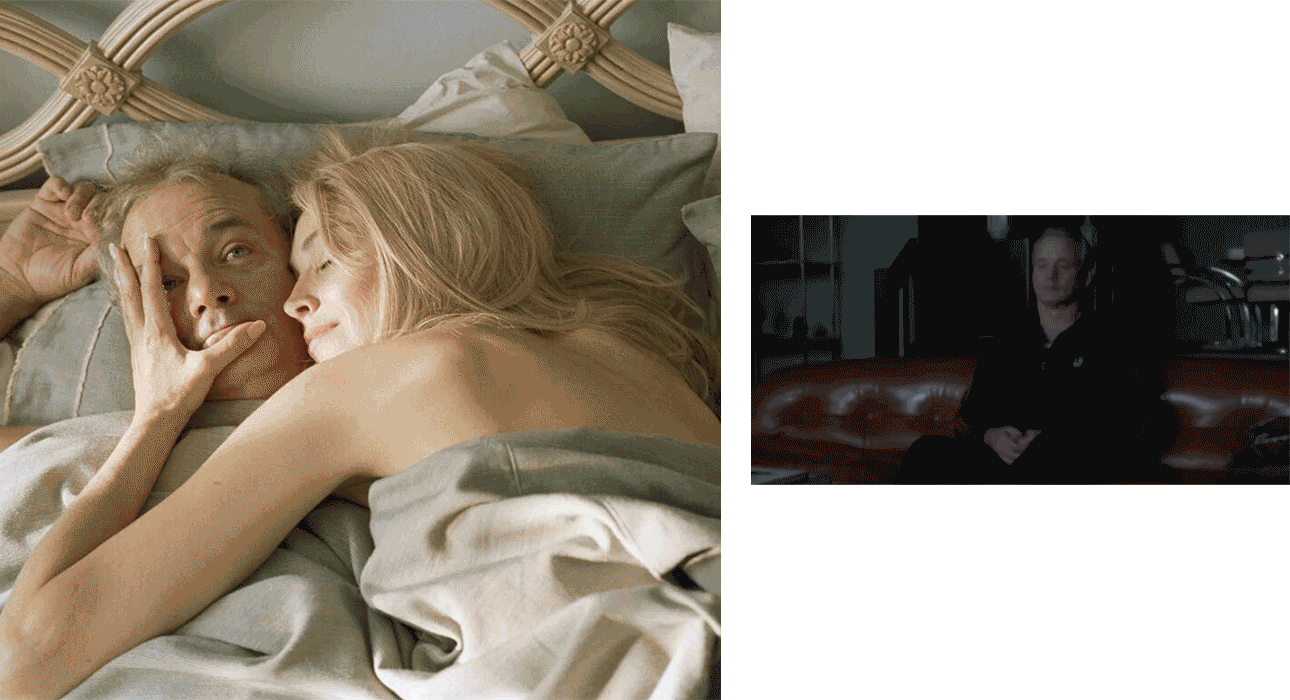Dear reader, we present to you our beauty columnist Inessa Tsarkova!
Inessa is an active nutritionist, gastroenterologist, therapist, naturopath and aromatherapist, health coach, integrative medicine doctor with a holistic approach. And now he will share with us his knowledge in the field of both physical and mental health, nutrition and much more.
Friends, have you ever wondered why a person sleeps for a third of his life? Polish philosopher and logician Tadeusz Kotarbinski, who lived to the age of 95, said: “Sleep shortens life in order to extend it.” Why does a person sleep for so long?

Inessa Tsarkova
Why do we need sleep?
Gabriel Honoré Marcel, the long-lived French philosopher and playwright who lived 120 years ago, was surprisingly lifelike. He wrote that “sleep is also a function and must be fulfilled in order for other functions to be fulfilled.” Here’s what you need to know about sleep and its importance for health.
In humans, as in other animals, the pineal gland (the brain’s pineal gland) produces the wonderful hormone melatonin during sleep. It is great because it is a “diazone” for our entire hormonal system. It is he who adjusts all hormone-producing organs to function optimally. And this includes the thyroid gland, pituitary gland, adrenal glands and reproductive system – everything that over time begins to work poorly in almost all people, leading to hormonal disorders.
Does everyone know that melatonin consists of serotonin (the joy hormone)? And is this made from tryptophan (or vitamin B5)?
So what functions does it perform? melatonin?
— sleep regulation (circadian rhythms). While it provides a deep and quality sleep at night, it breaks down in the morning, giving a feeling of vitality and a joyful day.
— Adjusting the hormonal system. If a woman sleeps little and inadequately for 1.5-2 years, she begins to experience problems with the thyroid gland, followed by a decrease in estrogen. And in men this process develops even faster (only after a year of chronic lack of sleep).
— Decrease in sex hormone levels (decreased libido). Moreover, you should not rely on daytime sleep – much less melatonin is produced during the day.
— insulin production It also depends on melatonin. This is another factor that leads to carbohydrate metabolism disorders and type II diabetes.
— lipid metabolism (regulation of absorption and utilization of fats). Did you know that we lose weight (especially around our waist) at night? But only if the dream is true. In addition, if melatonin is low, the amount of ghrelin (hunger hormone) increases and the amount of leptin (satiety hormone) decreases. Is it possible to lose weight and stay in a cheerful mood if you want to eat and sleep all the time?
— Effect on immunity. With the decrease in melatonin, the production of stem cells in the bone marrow decreases and these cells then become immune system sufficient.
— Ability to regenerate. In melatonin deficiency, the body’s reparative abilities decrease. Have you heard the secret of famous beauties who always get enough sleep?
Meanwhile, somatotropin, or growth hormone, which enables the growth of muscle tissue, is also a night hormone. And its amount directly depends on quality sleep.
And now the most important thing: what needs to be done so that melatonin is produced in sufficient quantities and sleep is deep and truly restorative?
10 rules for healthy sleep
There are many factors that will directly affect your sleep quality.
Create a cave-like environment in your bedroom

As physiologists discovered, we need “cave” conditions for good sleep: Your bedroom should be dark, quiet, cool and humid. Under these conditions, the maximum amount of night hormones is produced. Therefore, there are several rules.
— It is important to sleep in absolute darkness. Thick curtains or dark colored blindfolds will help you with this.
— The room should be well ventilated, the recommended temperature is about 18 degrees. Otherwise, there is a risk that your cortisol (stress hormone) level will increase due to heat and stuffiness and you may wake up early or sleep restlessly.
— The room should be quiet. This is especially important for men, as testosterone is produced in silence and darkness.
– Monitor the humidity of the air. This is especially true in winter when the heating is on and the air is very dry.
Train your body for the optimal time to wake up and go to bed
Night hormones will be best produced between 21.00-03.00. After this period, cortisol levels, which help our body wake up in the morning, begin to increase.
Its production peaks at 5:00-5:30 in the morning, when it is easiest and best to wake up. Therefore, to improve your sleep quality, you should go to bed between 22:00 and 22:30 at the latest. It is optimal that you are already in deep sleep between 23:00–23:30 (this is about an hour after falling asleep). If you’re used to falling asleep later, gradually waking up earlier will help you get to bed on time.
You can get used to this if you wake up at approximately the same time every day during the week, including weekends. Try waking up earlier for four weeks and gradually move your waking time earlier. Regularity is important for our hormonal system to work well.
Determine sleep duration
Try to sleep at least seven hours and at most eight hours. Excessive sleep is as harmful to our nervous system as lack of sleep.
Create the optimum light level
Try not to look at gadget screens for at least 1-2 hours before going to bed and gradually reduce the light level. For example, install special programs on gadgets that change the brightness of the screen from white-blue (which is the brightness of daytime sunlight) to red-pink (the colors of the “setting sun”, which sends signals to our hormonal system). It’s time to get ready for bed).
Dim the light in the room using night lights or wear glasses with red-orange lenses. Rest assured: If you suddenly change the brightness (when you turn off the light and go to bed), your pineal gland won’t have time to readjust. Falling asleep while watching television is especially harmful to the health of our hormonal system and the health of our subconscious.
Maintain your physical activity level throughout the day

It is important to move actively, especially in the morning and in the first half of the day. This could be morning exercises, yoga or any fitness activity you enjoy. A quiet walk in the evening will be beneficial.
Monitor tryptophan levels
Tryptophan is converted into serotonin (the hormone of joy and activity) during the day and into melatonin, which is necessary for restful sleep, at night. Great sources of tryptophan include nuts (especially walnuts), seeds (such as sesame seeds), legumes (lentils, mung beans, chickpeas) and ripe bananas. Tryptophan is also found in animal proteins, but most of it is destroyed during their digestion and subsequent transformation.
Support your gut microbiome
Also worth paying attention to. After all, about one-third of melatonin is produced by beneficial microflora. For this, we need the raw fibers found in the leaves, stems and roots of plants.
Do not eat at night
It is important not to eat at night for melatonin synthesis. The fact is that after eating, the body produces insulin. And it is a day hormone, an antagonist of night hormones (including melatonin). It is optimal for the last meal to be 3.5-4 hours before bedtime. Both a full stomach and a feeling of hunger can disrupt sleep.
If you do not have time to have dinner on time, drink herbal tea with honey (preferably mint or chamomile) or eat a light vegetable salad an hour before bedtime. Another option is a glass of water with a diluted spoonful of psyllium (an excellent sorbent and food for beneficial microbiota). However, it is better to avoid caffeinated drinks (coffee, tea) in the afternoon and especially in the evening. Like alcohol, the second half of the night after drinking will be particularly restless.
Use natural, therapeutic grade essential oils
These drugs can be an excellent alternative to sleeping pills, which have many unwanted side effects and damage our liver.
Sleep problems may also occur as a side effect when taking other medications. For example, nootropics and antipsychotics that stimulate the central nervous system, as well as some anti-allergy drugs (antihistamines often exhibit a so-called paradoxical effect reaction on the nervous system in the form of a stimulating effect on the central nervous system).
The use of natural essential oils not only does not have undesirable effects, but also has a beneficial effect both on the nervous system and on the entire body as a whole, improving the state of the immune and hormonal systems and the functioning of internal organs.
The most famous in the world for its beneficial effects on the nervous system is lavender essential oil. Its light floral aroma makes it one of the main ways to have a healthy and restful sleep. It can also be taken internally (for example, by adding a drop of essential oil to a cup of evening herbal tea), inhaled through your palms before bed, added to a diffuser, or dripped onto your pillow.
Aromas of essential oils of incense, Roman chamomile, cedar, copaiba and vetiver will also help restore emotional balance and create a calm atmosphere before bedtime.
Create your own collection of calming rituals before bed
This could be a hot bath with sea salt and relaxing essential oils, breathing practices, meditation, yoga classes. Reading your favorite book or writing in a gratitude journal, listening to relaxing music, or giving yourself a gentle massage before bed can help you calm down, get in tune, and eliminate anxious thoughts.
My dear readers, take care of your restorative sleep, and in return this incredible wizard will surely give you health, vitality and youth!
Source: People Talk
I’m Roger Gritton, and I’ve been writing for the The Fashion Vibes for over 5 years now. My specialty is beauty news; I’m passionate about covering the latest trends, products, and innovations in the industry. In my time there, I’ve become known as an authority on all things beauty-related.
I love discovering new experts to interview, researching up-and-coming ingredients and techniques that are making their way onto our beauty shelves and highlighting people who are making a difference in the world of cosmetics. My work has appeared not only on The Fashion Vibes, but also several other publications including the New York Times Magazine, Allure Magazine and Refinery29.





